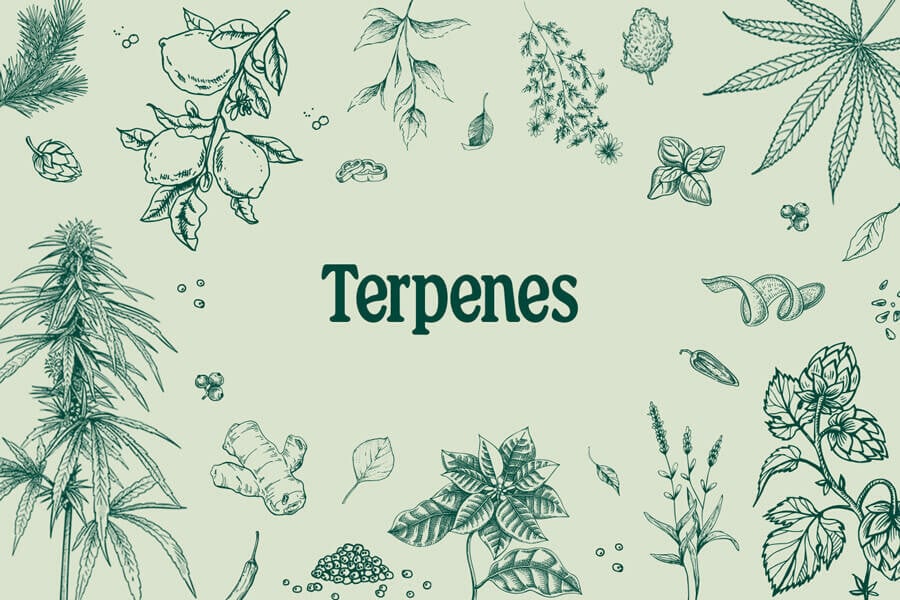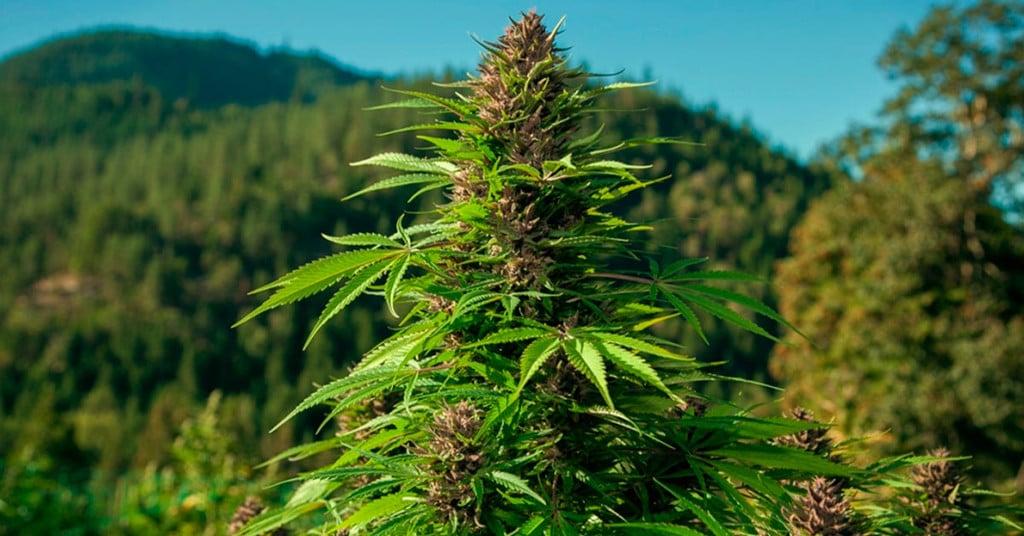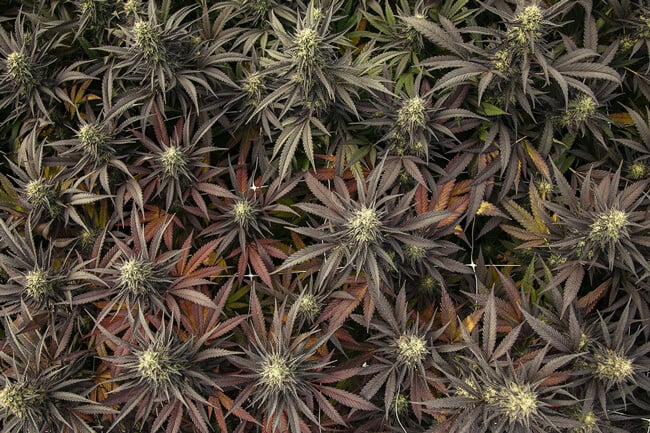.
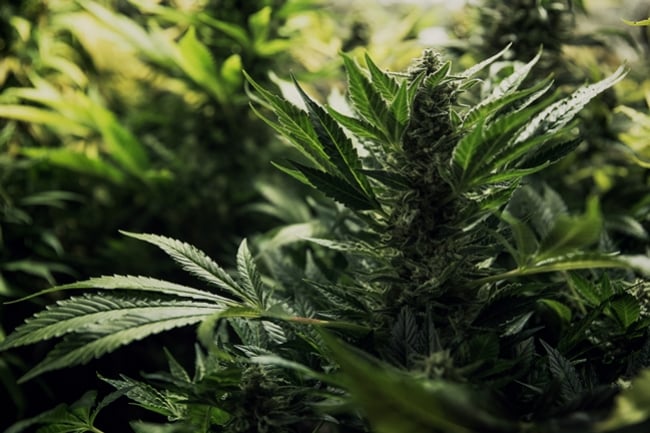
What Are Hybrid Cannabis Strains & How Are They Created?
Hybrid cannabis harnesses the traits of two or more cultivars to create one super-charged strain. Learn how hybrids are created, why they're important, and some of the crucial traits growers select when looking to produce new and exciting hybrid varieties.
Contents:
Cannabis, like other plants, either exists as a pure breed, or as a hybrid mix of strains. As the industry has commercialised, both pure strains and existing hybrids are continually mixed and remixed. These new plants are known as hybrids.
Hybrids are a man-made attempt at customising plants with specific kinds of characteristics usually found in ruderalis, sativa, and indica strains. Successful hybrids inherit the best qualities from their parents.
This is a beginner’s guide to understanding where hybrids come from.
What Kinds Of Hybrid Strains Are There?
Generally, there are four types of strains:
- Sativa x sativa: Two different sativa varieties are bred together.
- Indica x indica: Two different indica varieties are bred together.
- Sativa x indica: A strain described this way is a hybrid with sativa-dominant characteristics. However, it has traits of both varieties of cannabis. It could be a tall plant with purple buds, for example.
- Indica x sativa: This variety will have characteristics of both, but is indica-dominant.
In addition, autoflowering hybrids are cultivars which have been mixed somewhere down the line with ruderalis genetics.
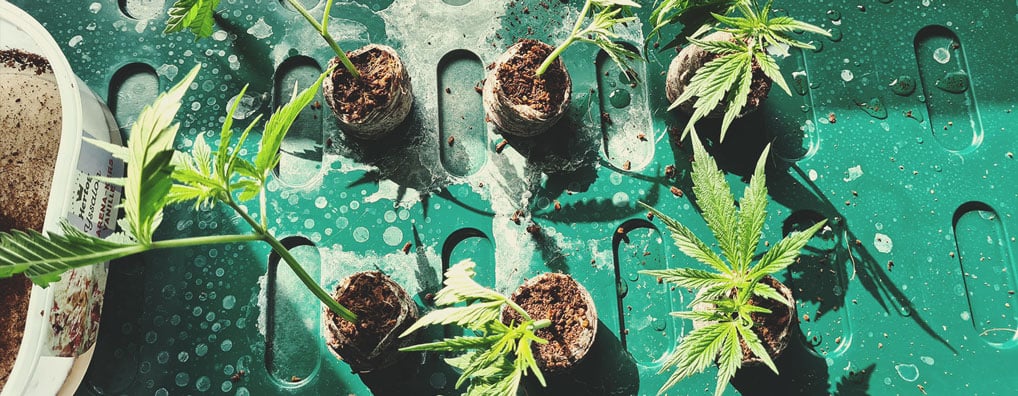
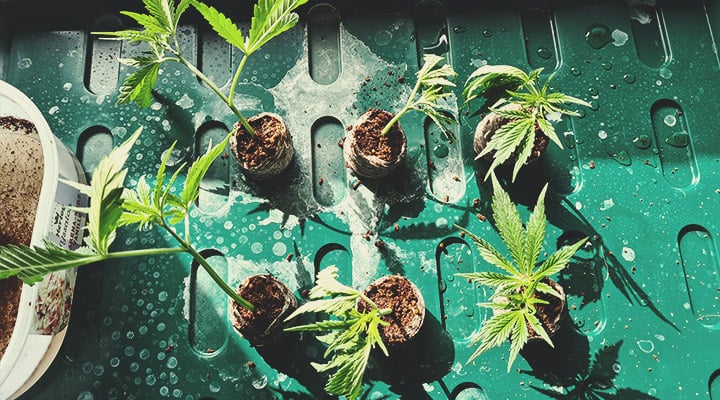
Breeding New Cannabis Strains
Breeding any plant involves the same basic process. Cannabis is no different. A female plant must be pollinated with male pollen. This happens naturally. However, in hybrid creation, breeders engage in selective breeding in a controlled environment. In other words, they pick the female plant and male pollen to produce a specific trait or set of them.
Seeds germinated by this process will be first generation hybrids of the male and female parents. Those with the desired traits will be bred again. Once these traits have been produced, breeders will “cube” the strain. In other words, they will breed a child hybrid with a parent strain to reinforce the characteristics. It is usually repeated across three or more generations to stabilise the characteristics.
Cannabis can also be propagated “sexually” or “asexually”. The sexual reproductive process involves combining different parents. However, vegetative methods also include cloning, cuttage, and even division of roots. Asexual reproduction allows the exact same plant to be produced again and again.
Dominant and Recessive Traits
Genetic inheritance describes how the genetic material of the parents (whether cannabis plants or people) is combined and passed on to the progeny. While the offspring will receive material from both parents, specific genes from each one will dominate the expression of individual characteristics.
First detailed by Gregor Mendel during experiments breeding pea plants, the scientist came up with the following three principles of inheritance to determine how traits are passed down from parent stock to the progeny.
| Law of dominance | Mendel’s first law of inheritance, the law of dominance, states that offspring only inherit the dominant trait. The suppressed alleles (genes) that don’t show are deemed recessive. |
| Law of segregation | Mendel’s law of segregation states that each parent plant possesses two alleles, but only one is passed on to the progeny. |
| Law of independent assortment | This law argues that the inheritance of various genes is an independent process that is not contingent on or associated with the inheritance of other genes. |
| Law of dominance |
| Mendel’s first law of inheritance, the law of dominance, states that offspring only inherit the dominant trait. The suppressed alleles (genes) that don’t show are deemed recessive. |
| Law of segregation |
| Mendel’s law of segregation states that each parent plant possesses two alleles, but only one is passed on to the progeny. |
| Law of independent assortment |
| This law argues that the inheritance of various genes is an independent process that is not contingent on or associated with the inheritance of other genes. |
Until Mendel’s discovery, it was thought that offspring received a “blended” combination of genes from both parents, resulting in the expression of traits “in the middle” of both characteristics, as opposed to dominant and recessive genes.
Complete vs Incomplete Dominance
To understand this concept as it relates to cannabis, as well as the pitfalls of Mendel’s laws, below we introduce the two types of dominance that exist.
- Complete dominance: Complete dominance is when the dominant gene completely suppresses the expression of the recessive gene, meaning only the dominant traits show in the resulting phenotype. This theory is in keeping with Mendel’s original studies. In terms of cannabis, we can use colour as a simplified example. If one parent plant features green as the primary colour (dominant) and the other features purple (recessive), according to the rule of complete dominance, this will result in exclusively green plants in the first generation, and mostly green plants with a few purple plants in subsequent generations.
- Incomplete dominance: This is when neither gene is dominant, resulting in both dominant and recessive features in the phenotype. Although less common, this results in intermediary traits in the first generation, and subsequent generations, of offspring, which is in opposition to Mendel’s law of dominance and independent assortment. Using our cannabis example from above, the progeny would exhibit a mix of green and purple hues, as opposed to one or the other. As such, Mendel's law of segregation is the only one agreed to be true without exception. The other laws are still valid, but there are inconsistencies.
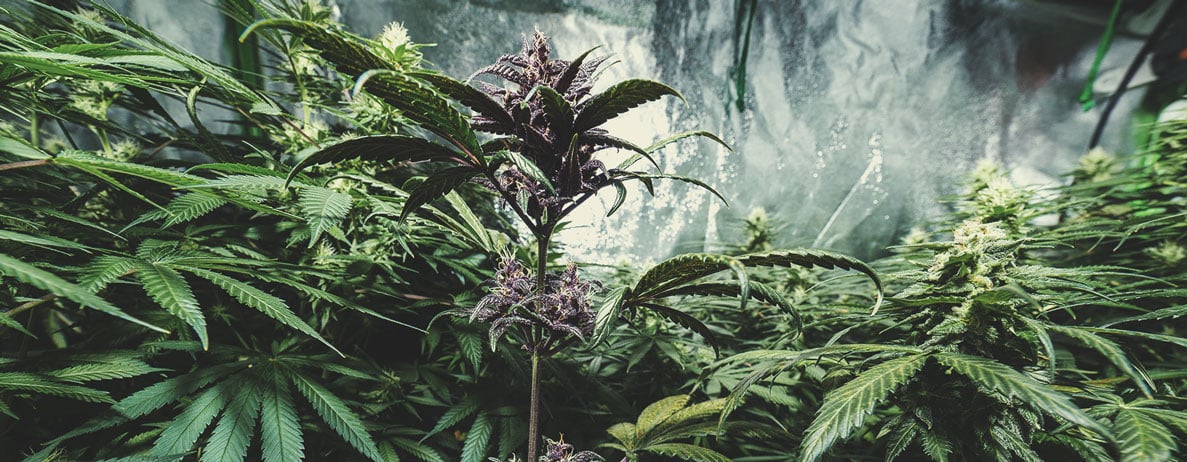
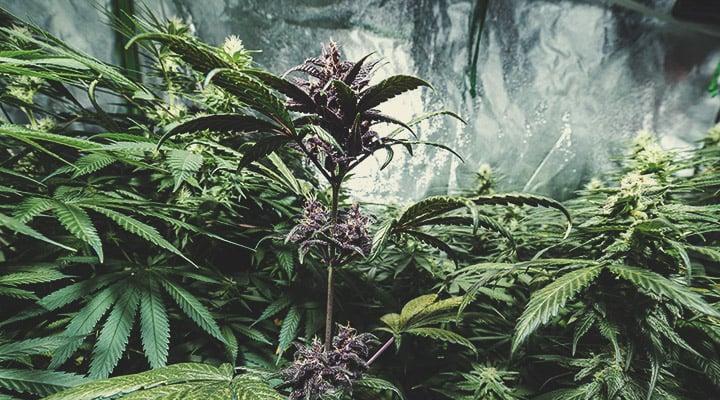
Landrace Weed and the Cannabis Subspecies
Landrace cannabis is that which has once been domesticated by humans, but has adapted to different geographical regions where it now grows “wild” without human interference (aka open pollination). As such, these strains tend to grow remotely, usually in mountainous areas.
There are three main types of cannabis, which appear as landraces in different regions of the world, and then there are cannabis hybrids:
- Indicas: These are short and stubby strains with heavy resin production and dense buds. Certain landrace indicas, like Kush, contain moderate levels of THC alongside secondary cannabinoids and an abundance of the stoning terpene myrcene. Adapting to harsh, mountainous environments, many landrace indicas are used to breed robust, compact cultivars.
- Sativas: Sativas are known for being tall and tree-like, with fluffier buds than indicas. These majestic strains hail from places like Mexico and South Africa. The latter is the home of Durban Poison, a unique strain featuring THC, THCV, and a very strong presence of terpinolene, which gives the strain its unique peppery-herbal flavour.
- Ruderalis: This is a low-THC subspecies of cannabis native to Central Asia and Eastern Europe. Its most important trait is that it is not photoperiod dependent, meaning it will flower no matter how much light is present. This is a highly sought-after trait on the commercial market. When you see an autoflowering version of your favourite hybrid, you will know it was achieved by crossing indica or sativa with ruderalis.
- Hybrids: Hybrid cannabis strains are the result of humans crossbreeding the above subspecies. A combination of indica, sativa, and/or ruderalis, hybrids exist to highlight specific traits sought after by breeders, growers, and consumers. One of the earliest commercial hybrids is known as Skunk. This may have been the first "mainstream" crossing of an indica and sativa, but it was far from the last.
What Traits Do Breeders Look For?
Certain traits are deemed extremely desirable in a commercial market where clients can afford to be increasingly picky, and where variety is the spice of life. This will continue to be true as the cannabis industry legitimises.
As a result, one thing that most professional breeders are also aware of is the importance of maintaining plant biodiversity. Who wants just one or two strains of cannabis—like, say, the commercial banana (the fruit)?
Below are the most highly sought-after traits in modern weed strains.
-
Yield
The amount of flowers a cannabis plant can produce comes, minus subpar cultivation conditions, chiefly from its heritage. Indicas, for example, are known for their heavy production of dense buds, and thus are often used to impart superior yield potential to new hybrids. That said, some sativas are also naturally huge producers, but they reach dizzying heights—unless hybridised with an indica strain to retain their yields while lowering their stature.
-
Potency
In a world that loves extremes, THC concentrations keep getting pushed higher and higher. This is, of course, the result of breeding already-potent strains to exhibit even higher potency. Now, certain hybrids express 25–30% THC or more (including our own Cookies Gelato) in their buds. Nonetheless, THC levels can’t exceed a certain threshold, which is believed to be around 35% by dry weight, as it comes from the same gene as that which is used to create other cannabinoids.
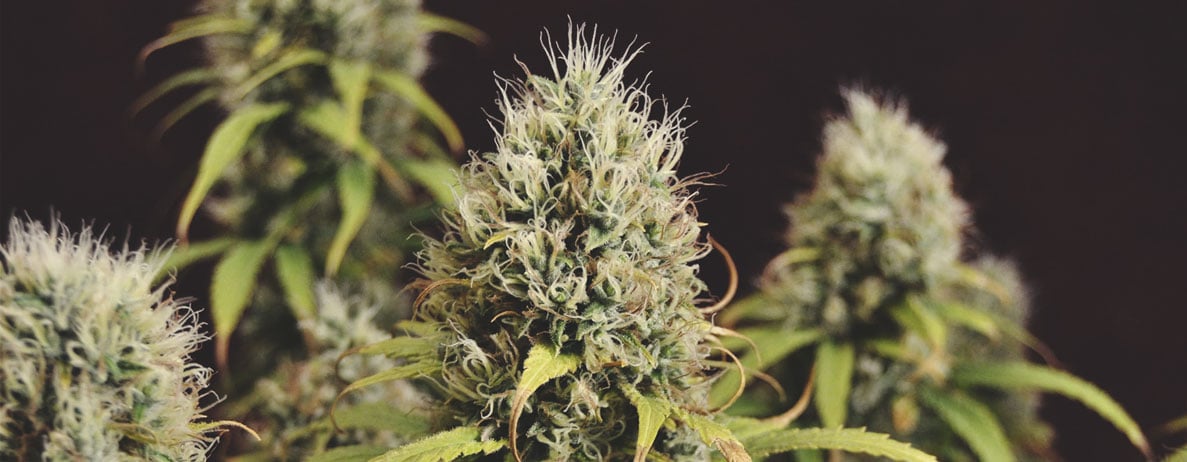
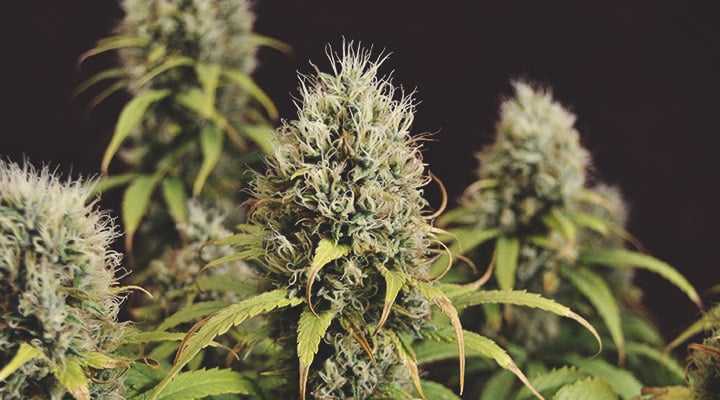
-
Specific Cannabinoid Content
Aside from pure potency, there is a strong desire for other cannabinoids to be enhanced in cannabis; CBD, THCV, CBDA, and CBG are four examples of cannabinoids that are now appearing in unprecedented concentrations, given recent studies and accounts detailing their potential wellness benefits. With that, human intervention has allowed unique cannabinoid profiles to be experienced that do not exist in landraces.
Today, there are cannabis hybrids with various ratios of THC:CBD to suit your needs. But like THC content, there are limits on the overall cannabinoid content of flower, which means some concessions have to be made during the breeding process.
-
Effects
The effects of cannabis were once believed to be determined by strain type (indica or sativa), but this is no longer considered accurate. In fact, it is the phytochemical concentration (particularly cannabinoids and terpenes) of a given cultivar that dictates its effects. We know THC is responsible for inducing a high, but it’s the terpenes that colour the experience with different sensations and experiences—e.g. relaxed vs euphoric.
With this in mind, breeders are able to tailor hybrid strains to different consumer preferences.
| Energetic and Uplifting | What some would once associate with sativa strains, energetic and uplifting effects can be achieved by creating a hybrid that exhibits medium levels of THC and invigorating terpenes like limonene and pinene. CBD may also be included to give a grounding element to the high. |
| Relaxing and Couch-Locking | As THC levels begin to increase, and sleepy terpenes like myrcene and linalool are thrown in the mix, the relaxing effect of cannabis is augmented. If you want to experience a physical stone that also clears your mind of worry, hybrid strains with these profiles are a good choice. |
| Clear-Headed | Choosing CBD (or another non-psychotropic cannabinoid) as the dominant cannabinoid ensures the experience is never overwhelming. CBD-rich cannabis strains are bred to allow users to stay focused and productive while also taking the edge off. Here too, terpenes are used to enhance the effects of the cannabinoids. |
| Energetic and Uplifting |
| What some would once associate with sativa strains, energetic and uplifting effects can be achieved by creating a hybrid that exhibits medium levels of THC and invigorating terpenes like limonene and pinene. CBD may also be included to give a grounding element to the high. |
| Relaxing and Couch-Locking |
| As THC levels begin to increase, and sleepy terpenes like myrcene and linalool are thrown in the mix, the relaxing effect of cannabis is augmented. If you want to experience a physical stone that also clears your mind of worry, hybrid strains with these profiles are a good choice. |
| Clear-Headed |
| Choosing CBD (or another non-psychotropic cannabinoid) as the dominant cannabinoid ensures the experience is never overwhelming. CBD-rich cannabis strains are bred to allow users to stay focused and productive while also taking the edge off. Here too, terpenes are used to enhance the effects of the cannabinoids. |
-
Plant Structure
Plant structure is another trait that commercial breeders look to optimise in hybrid cannabis. While huge cannabis trees are beautiful, they’re not ideal for most home growing operations, or commercial ones for that matter. That said, sometimes longer, lankier strains are desired. In any case, plants can be crossbred to display the size and shape that is most desirable, without making huge concessions in the yield department. Such traits include optimal internodal spacing, many bud sites, and strong stems and branches.
-
Flavour and Aroma
This is a biggie, and also depends on the terpenes found in the plant. Luckily, there are all manner of hybrid weed cultivars with unique aroma and flavour profiles to cater to every preference. Whether you’re after deep and dank or light and fruity, you’ll find a variety to satisfy your needs.
Generally, hybrids are produced to express assertive and dynamic flavours that really hone in on the chocolatey, citrusy, or sweet nature of the buds. On the other end of the spectrum, you have those hybrids that allow users to indulge in pungent, almost off-putting scents and flavour profiles such as cheese and diesel.
These are just a few examples of possible profiles, but it spans much wider than this. Breeders can create strains with notes of eucalyptus, honey, candy, pepper, lavender, mint, blueberry, baked goods—the list goes on. Opposing flavours can even be combined to create something complex and even uncanny; crossing Blueberry and Cheese creates a hybrid that tastes just like blueberry cheesecake—albeit with a THC twist!
-
Compactness
Plant size is an important trait that breeders seek to optimise. In order to cater to the demand for compact but productive plants, strong indicas are often hybridised to achieve the ideal stature. However, it is possible to achieve compact sativa-dominant or 50/50 indica/sativa hybrids by carefully crossing and stabilising certain cultivars over numerous generations.
-
Speed (Fast Flowering)
This is another huge one, and another area in which indica (and ruderalis) plants tend to excel. Nowadays, cannabis hybrids are bred to have a short flowering time averaging 8–10 weeks. This is usually even shorter in autoflowering varieties, which also have a brief, preset vegetative phase of around 3 weeks.
For lovers of varieties with long flowering periods, such as Haze, breeders have crossed these plants with indica or ruderalis to cut the flowering time down from, say, 15 weeks, to just 10 or 11.
-
Autoflowering
Autos offer many benefits to growers. In addition to flowering based on age, modern autos are robust and don’t make major sacrifices in terms of potency or yield. Although autos do tend to be slightly less potent and productive compared to photoperiod-dependent strains, they allow growers to be more hands-off with their plants, and open up the opportunity to achieve multiple harvests per season. The best autoflowering hybrid strains are those that retain the qualities of their original indica or sativa parent while capitalising on the autoflowering trait given to them by the ruderalis parent.
-
Resin
Heavy resin production means an abundance of cannabinoids and terpenes, and makes a cultivar more suitable for the creation of concentrates or hash. Also, crystal-coated buds look amazing. Certain indicas are naturally abundant resin producers, and breeders have harnessed these varieties to create strains that look as though they’ve been covered in ice. Strains known to produce a lot of resin include White Widow and ICE.
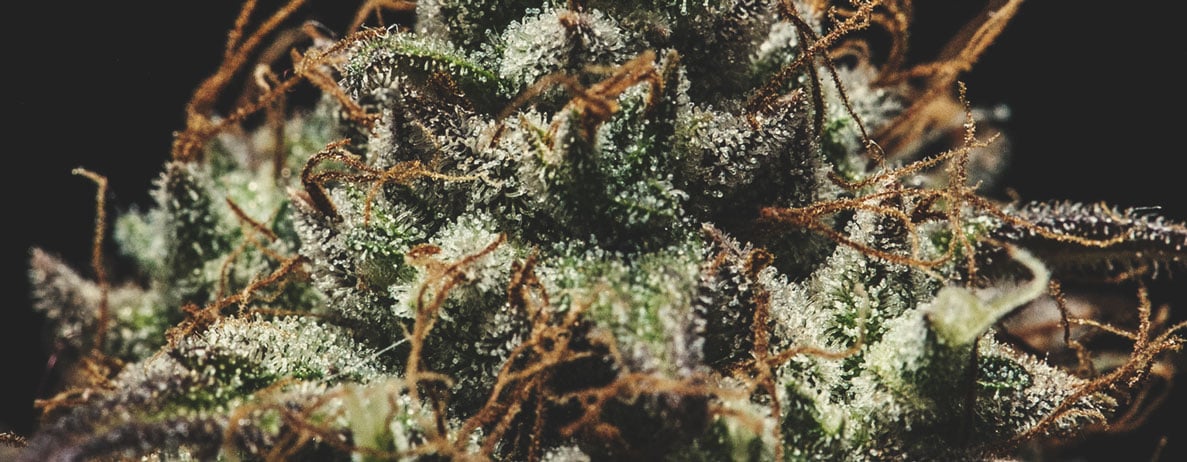
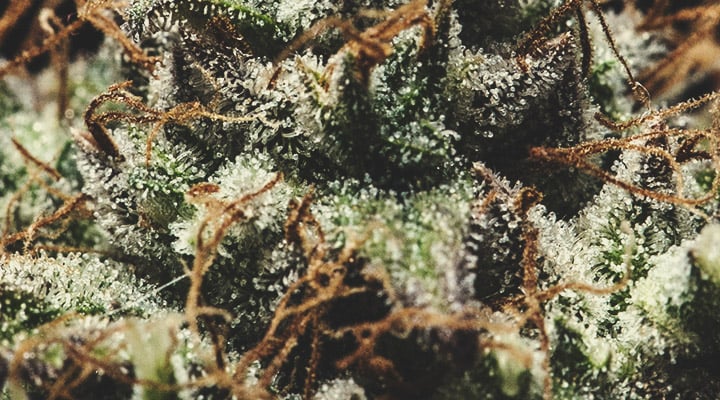
-
Temperature Stress Response
Cannabis can also be bred to display resistance to excess heat or cold. Breeders have done their best to create hybrid varieties suitable for practically any climate. In fact, certain strains will exhibit purple or red hues if nighttime temperatures drop to a specific level. By stabilising these varieties, breeders give home growers the opportunity to stress their plants slightly to achieve more desirable aesthetics. This is but one example of how weed plants have been bred to resist stress inflicted by temperature.
-
Mould, Disease, and Pest Resistance
As well as temperature, cannabis plants are hybridised to display resistance to mould, diseases, pests, and pathogens. For example, highly resinous plants are believed to ward off pests more effectively, and slightly fluffier, more “open” buds can help to prevent mould development in humid conditions. By taking already resistant and resilient plants and crossing them, it is possible to create hybrid strains that withstand all manner of threats.
-
Colour
Certain landraces naturally express unique colours aside from green. These dazzling hues can be harnessed and fine-tuned to create strains with tones of purple, red, pink, yellow, (almost) black, and, of course, green. Purple cannabis has long been, and still is, highly desired, and thus breeders have managed to imbue these hues into a wide variety of strains.
Not All Hybrids Are Created Equal
There are different ways in which breeders of hybrid cannabis can approach a project. They can opt for compensatory mating, which essentially limits the shortcomings of one plant by combining it with another, directional selection, which works to target a certain characteristic in a phenotype and perpetuate it over the following generations, or seed production (e.g. open pollination).
-
Compensatory Mating
Compensatory mating allows breeders to harness ideal characteristics from two separate plants to create offspring that bears the best features of both, and masks or compensates for any limitations. This is very common in the world of modern weed breeding. For example, one parent may contribute great potency and flavour, while another brings yields and fast flowering times to the table. Even if one parent lacks the other's winning traits, this can be mitigated through keen compensatory mating.
-
Directional Selection
This is essentially the process of identifying a desired trait in a phenotype and perpetuating this trait over subsequent generations by stabilising the progeny. In other words, you remove unwanted specimens, and hone in only on those that offer a specific sought-after characteristic, such as super-large yields or exceptional potency or flavour. This allows for a great deal of influence when creating strains with certain specifications.
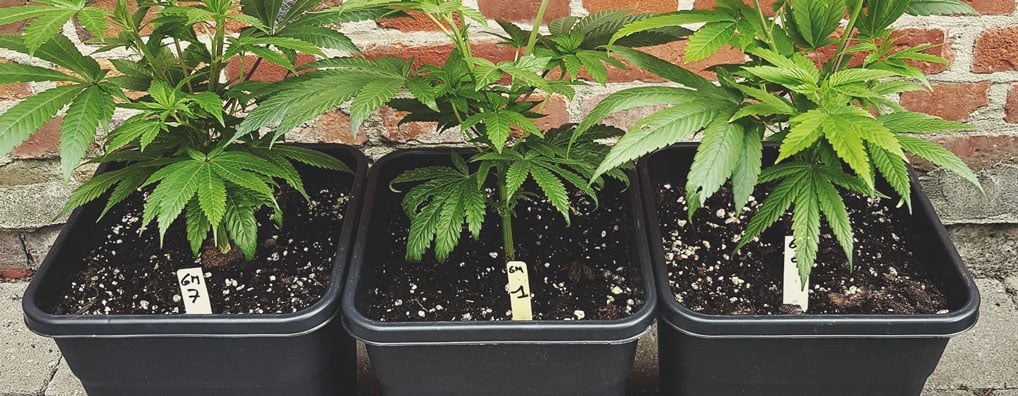
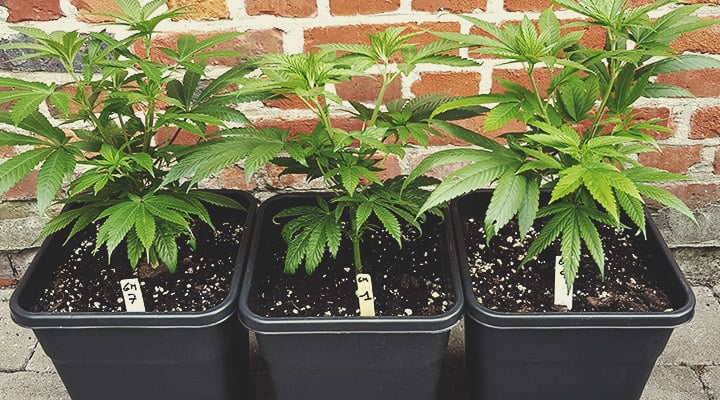
-
Seed Production
In cannabis breeding, seed production of this sort essentially leaves the process up to nature. By exposing female plants to the pollen of males, the former will produce seeds, resulting in a high level of variability in the progeny. Yet, some don’t consider this true breeding, as it doesn’t aim to tease out specific traits. That said, this type of "random" breeding can deliver good results, but it's far less consistent.
Nonetheless, it is not easy to develop a new, successful hybrid. It takes experience, patience, and a lot of work. And not all hybrids are equal in quality, starting with stability.
With that in mind, the following types of hybrids can be found on the market today:
- Clone-only: A clone-only hybrid is one grown exclusively from cuttings of the same mother plant. Growing conditions will greatly impact the final product, but it will be an exact genetic copy of the mother. In this way, the overall characteristics of the strain can be perpetuated over future generations.
- Stable seed: A stable seed strain is one where male and female plants are bred together repeatedly and maintain specific attributes. Slight genetic variation can be expected, but within a small range. These are generally the types of seeds home growers are looking for, as they produce the most consistent results.
- Unstable seed: An unstable seed strain is one that can be produced more quickly than a stable strain, but the results are not predictable. Professional seed shops will not sell unstable hybrid strains.
Hybrids Are Taking Over the World
At this point, hybrid cannabis is an industry standard. There are older hybrids that have been perpetuated for decades, but there are also newer ones coming to market all the time. Finding the perfect hybrid strain with the right combination of characteristics is part of the fun of growing, if not sampling, a wide variety of cannabis cultivars.
Although some choose to cultivate the same strains year after year, many are now experimenting with some of the more diverse and exotic hybrids out there, bringing something new and exciting to their garden or grow room.
Go wild. Explore. Enjoy.





























